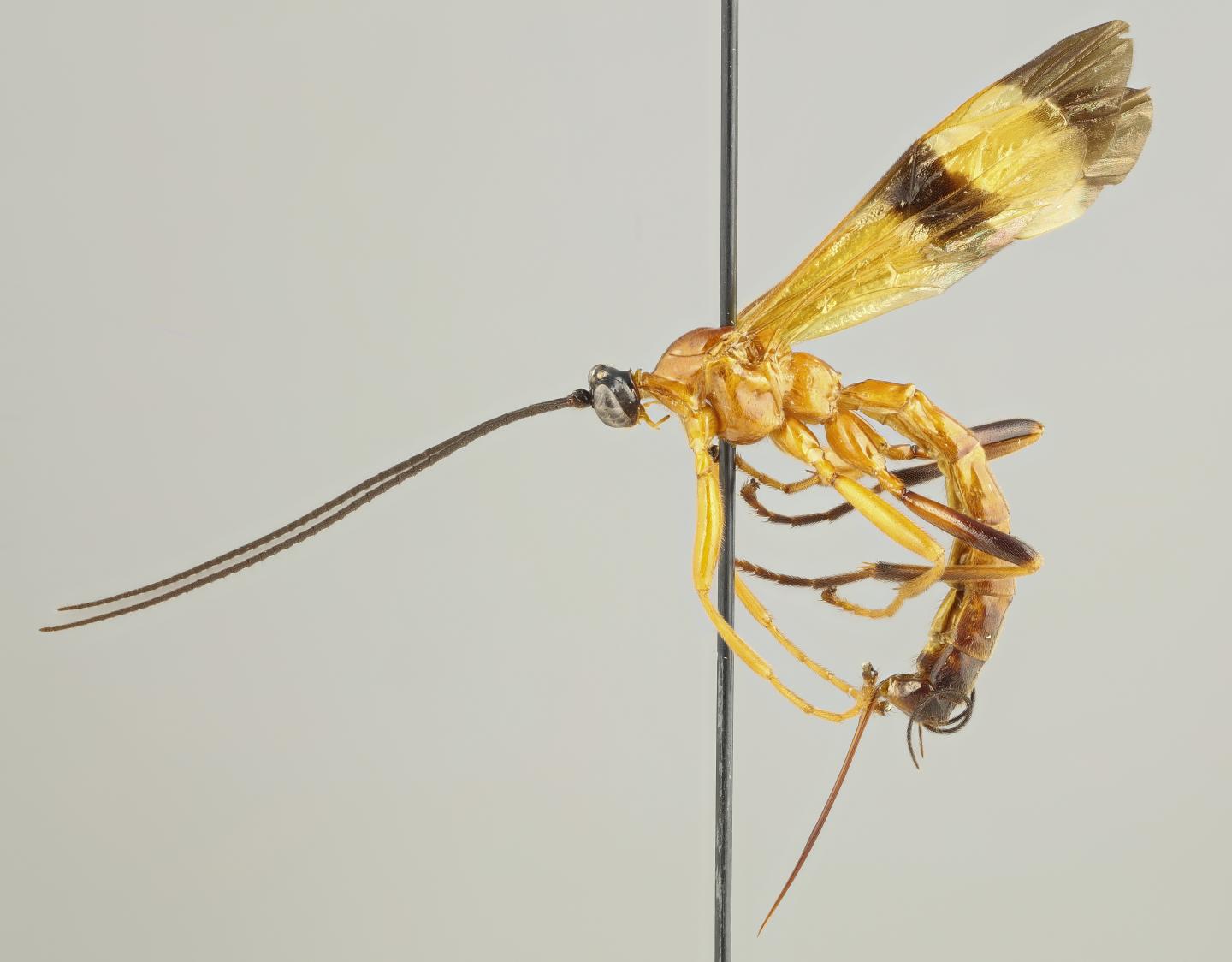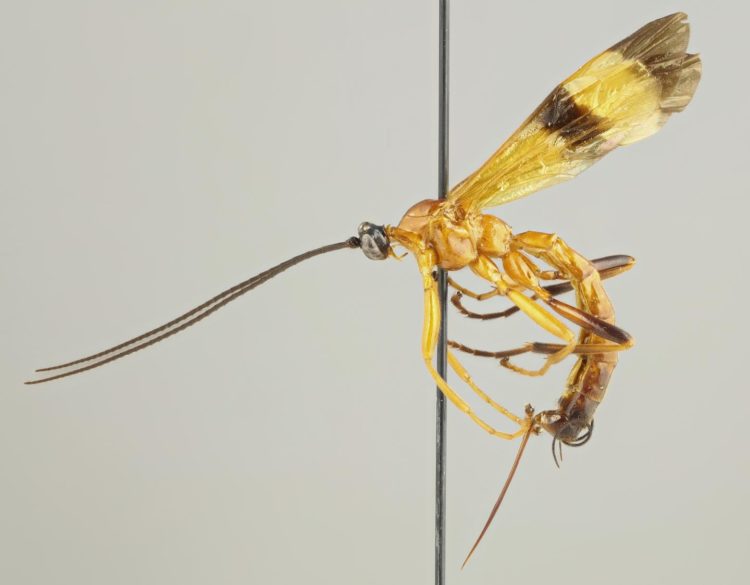
Credit: Kari Kaunisto
A research group from the Biodiversity Unit of the University of Turku studies the diversity of parasitoid insects around the world. Parasitoid wasps (Hymenoptera) are one of the most species rich animal taxa on Earth, but their tropical diversity is still poorly known. In the latest study, the group discovered 15 new, sizeable species that parasitise spiders in the lowland rainforests of the Amazon and the cloud forests of the Andes.
The researchers from the Biodiversity Unit of the University of Turku have studied the diversity of tropical parasitoid insects for almost 20 years already. During their research, they have discovered large numbers of new species from different parts of the world. In the newest study, the research group sampled parasitoid wasps of the genus Acrotaphus, which parasitise spiders. The diversity of the insects was studied in e.g. the tropical Andes and the lowland rainforest areas of the Amazon. The research was conducted in cooperation with the Brazilian INPA (Instituto Nacional de Pesquisas da Amazônia) research unit.
– Acrotaphus wasps are fascinating because they are very sizeable parasitoids. The largest species can grow multiple centimetres in length and are also very colourful. Previously, only 11 species of the genus were known, so this new research gives significant new information on the diversity of insects in rain forests, tells postdoctoral researcher and lead author of the new study Diego Pádua, who has worked both for the INPA and the Biodiversity Unit of the University of Turku.
The parasitoid Acrotaphus wasps parasitise on spiders. A female Acrotaphus attacks a spider in its web and temporarily paralyses it with a venomous sting. After this, the wasp lays a single egg on the spider, and a larva hatches from the egg. The larva gradually consumes the spider and eventually pupates.
– The Acrotaphus wasps we studied are very interesting as they are able to manipulate the behaviour of the host spider in a complex way. During the time period preceding the host spider’s death, it does not spin a normal web for catching prey. Instead, the parasitoid wasp manipulates it into spinning a special web which protects the developing pupa from predators. Host manipulation is a rare phenomenon in the nature, which makes these parasitoid wasps very exciting in terms of their evolution, tells Ilari E. Sääksjärvi, Professor of Biodiversity research from the University of Turku.
The University of Turku and INPA continue to study the diversity of the parasitoid wasps in collaboration in the west Amazon area and in the Andes. On each research trip, the researchers discover many new species with unknown habits.
###
Original publication:
Review of the New World genus Acrotaphus Townes, 1960 (Hymenoptera: Ichneumonidae: Pimplinae), with descriptions of fifteen new species
DIEGO G. PÁDUA, ILARI E. SÄÄKSJÄRVI, RICARDO F. MONTEIRO, MARCIO L. OLIVEIRA
Zootaxa, Vol 4719, No 1
DOI: 10.11646/zootaxa.4719.1.1
Media Contact
Ilari E. Sääksjärvi
[email protected]
358-405-460-976
Original Source
https:/
Related Journal Article
http://dx.





